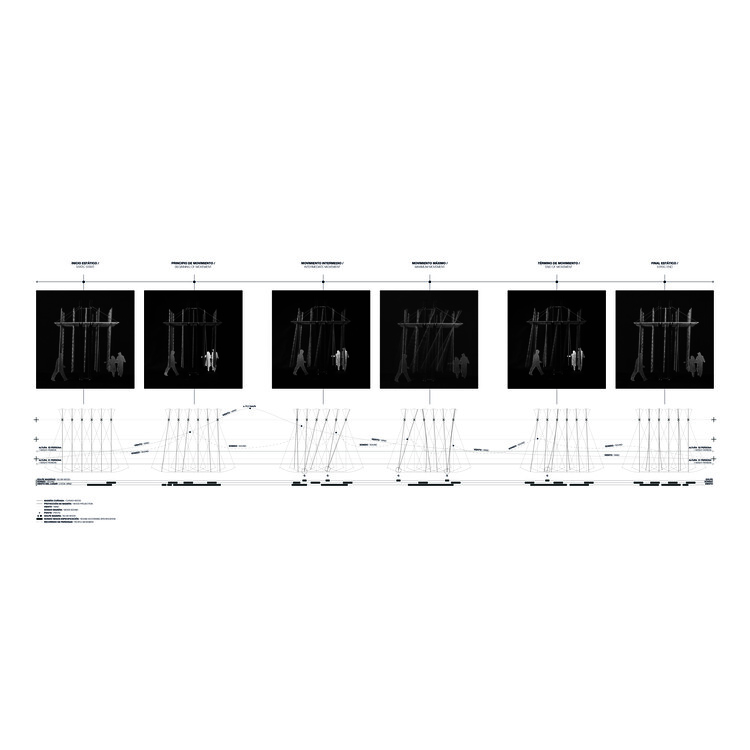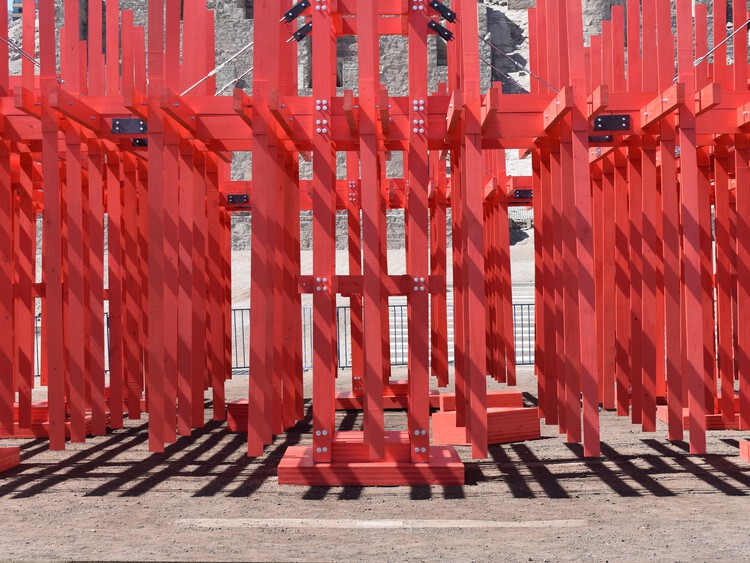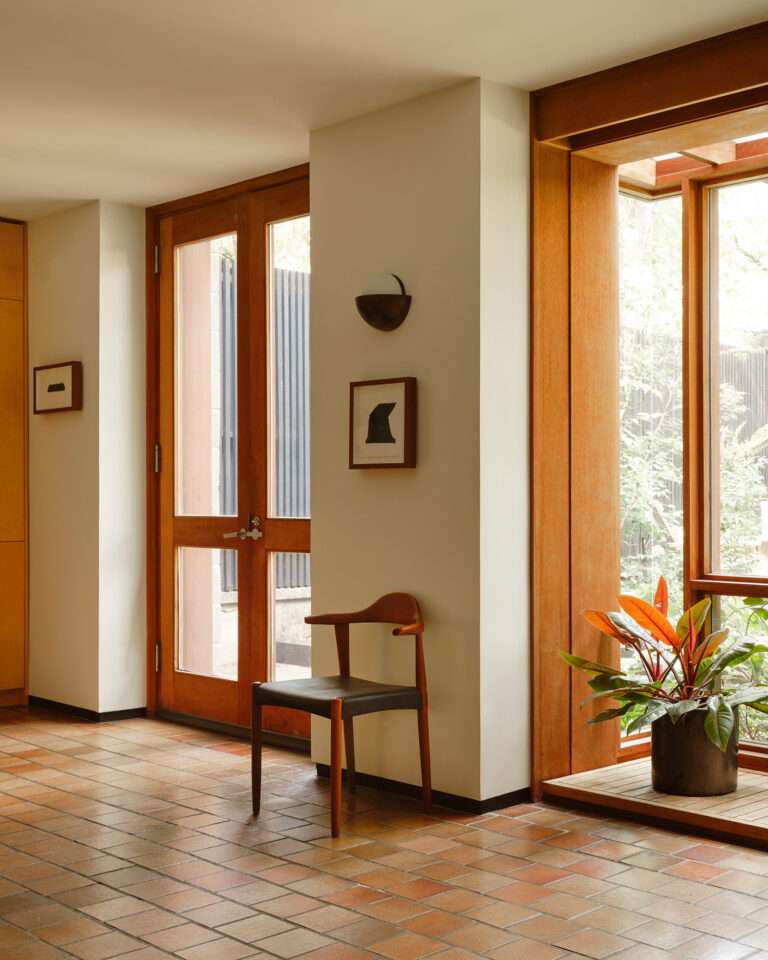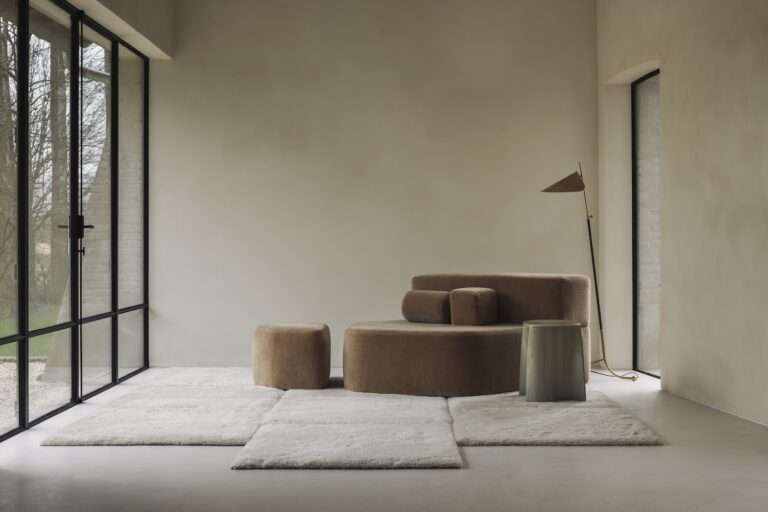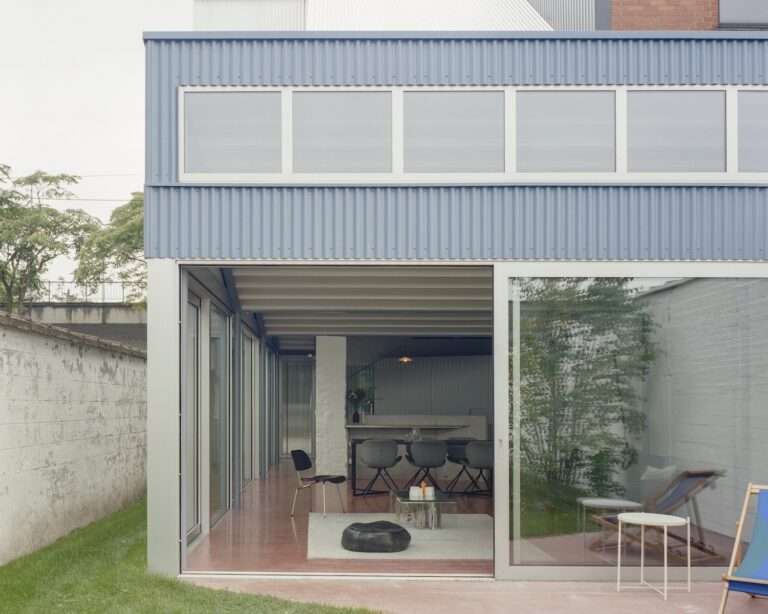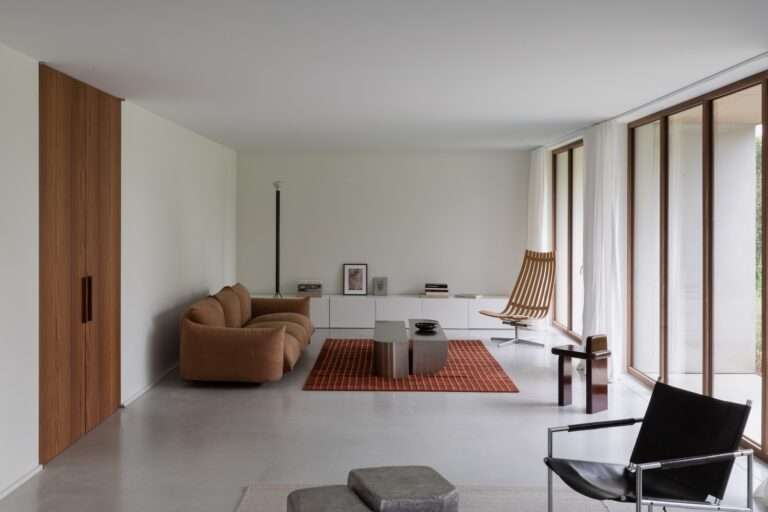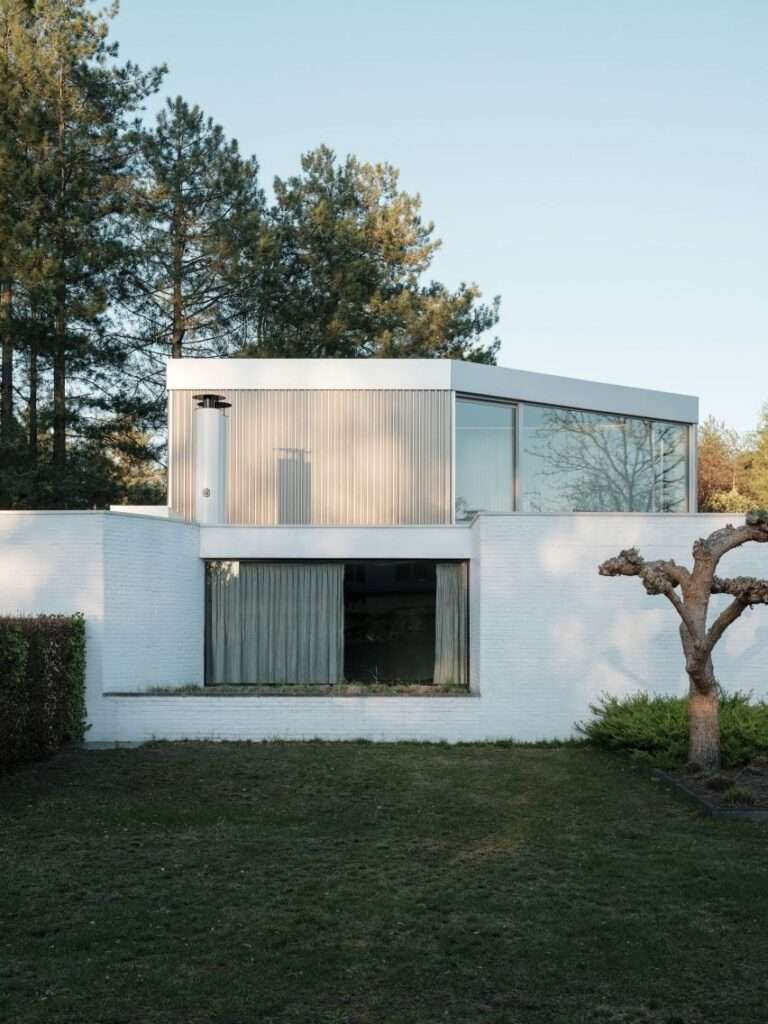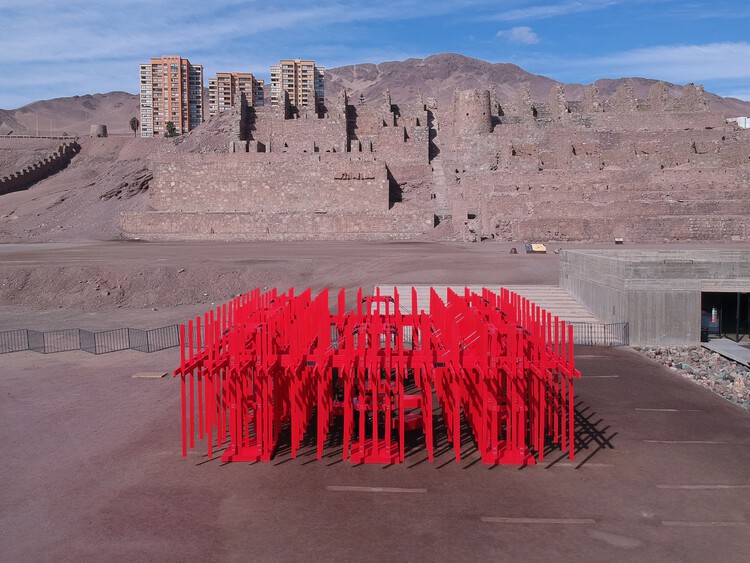
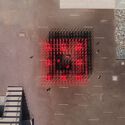
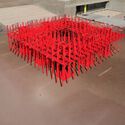
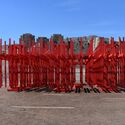
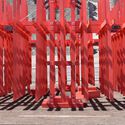

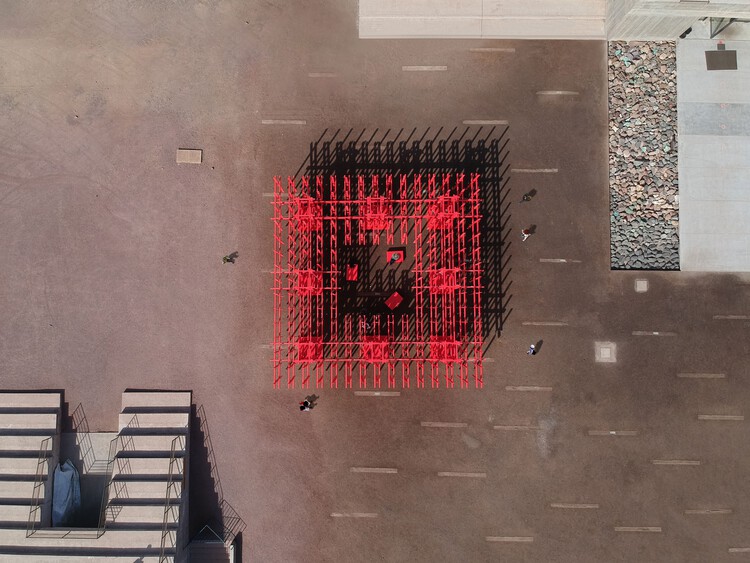
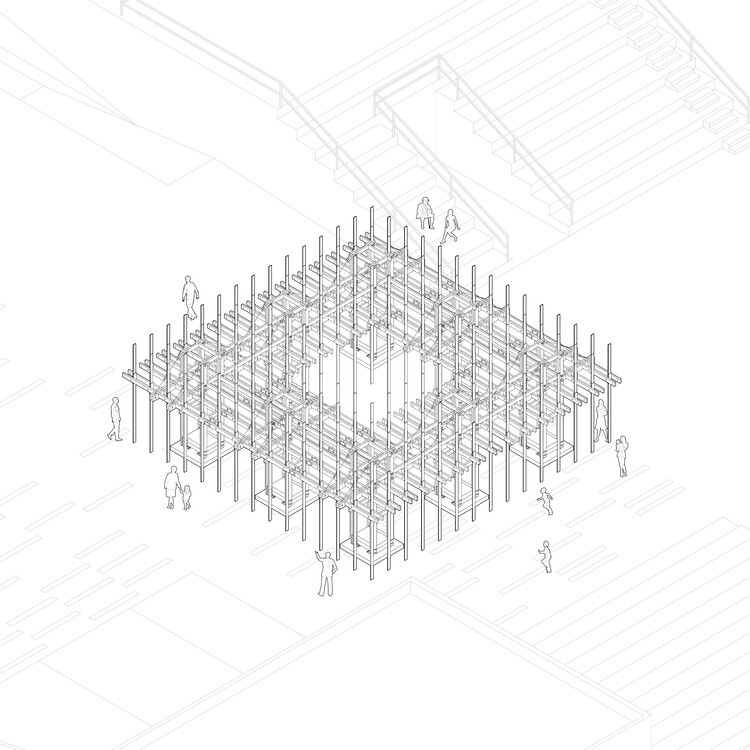
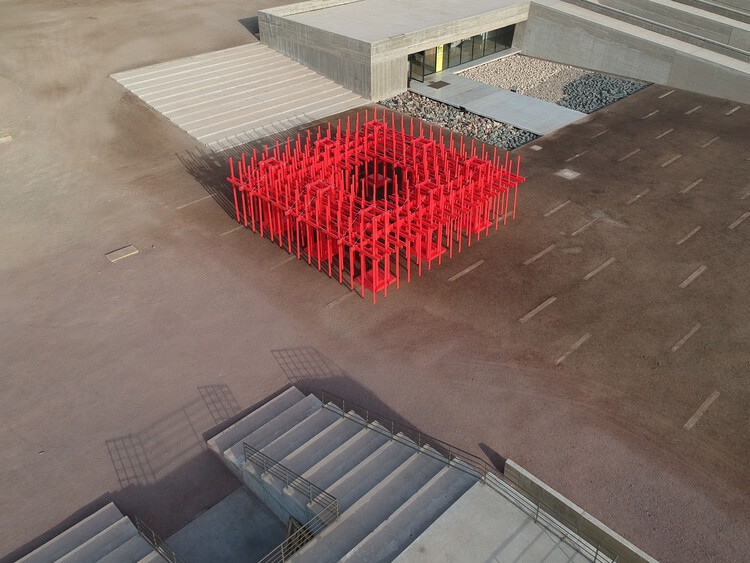
Text description provided by the architects. The pavilion proposes a performative experience that takes advantage of the specific characteristics of the Ruinas de Huanchaca Park in Antofagasta. This context includes physical, climatic, social, and cultural properties that act as phenomenological catalysts. This architectural proposal demonstrates the responsive capacity of architecture to modify itself in state, form, property, and use.
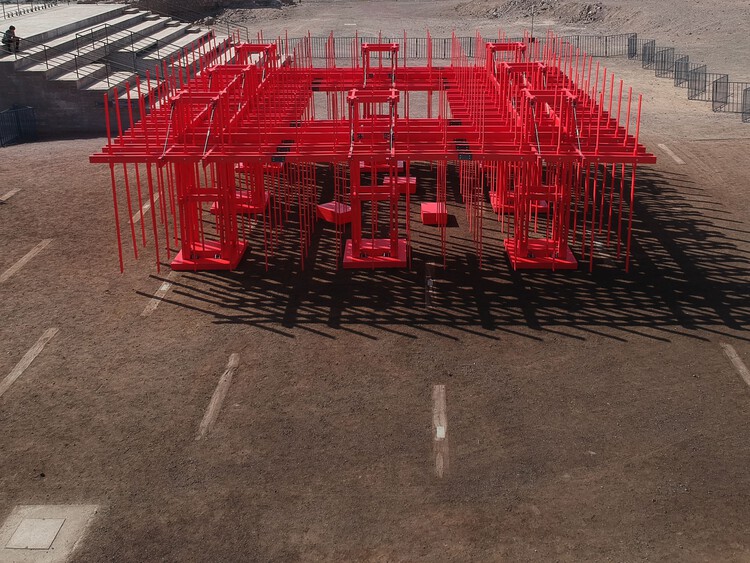
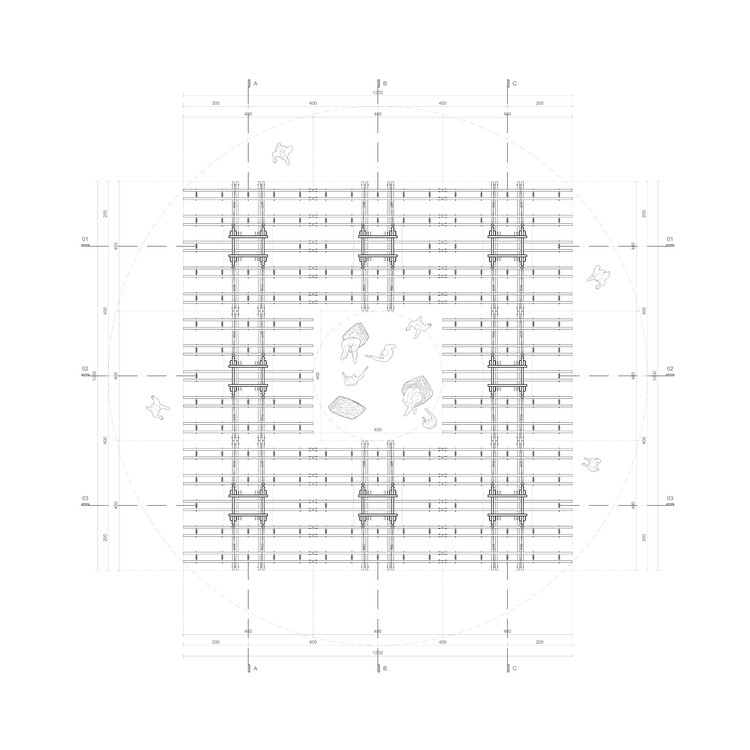
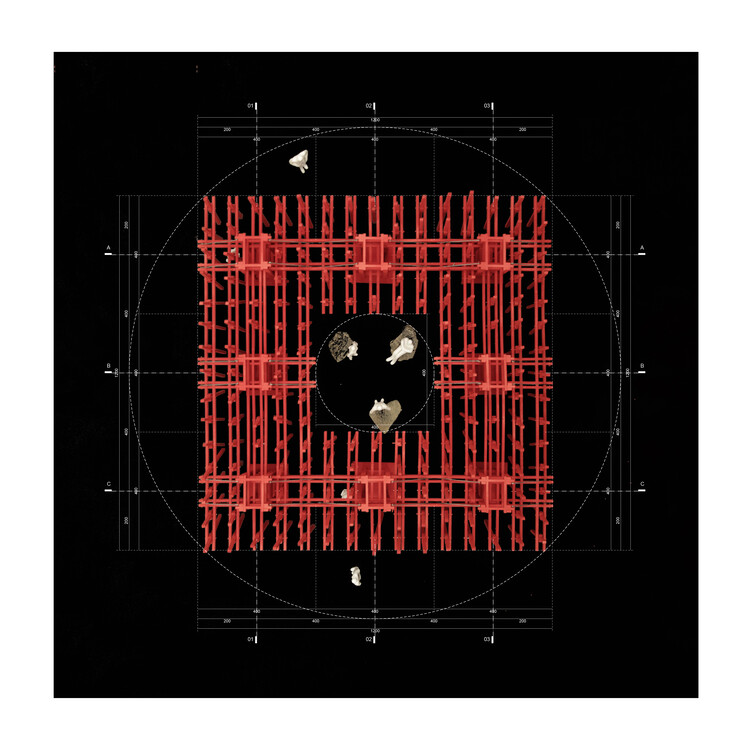
The project presents itself as an empirical evidence artifact formed by a four-meter thick perimeter, which is permeable on all four sides. This characteristic allows both the environment and the user to affect it. From a self-supporting structure, hundreds of fibers hang that react and reconfigure with use, the passage of time, and the climate, thus constructing a diffuse and restless shadow sky where there is none, along with a dry and rough sound.
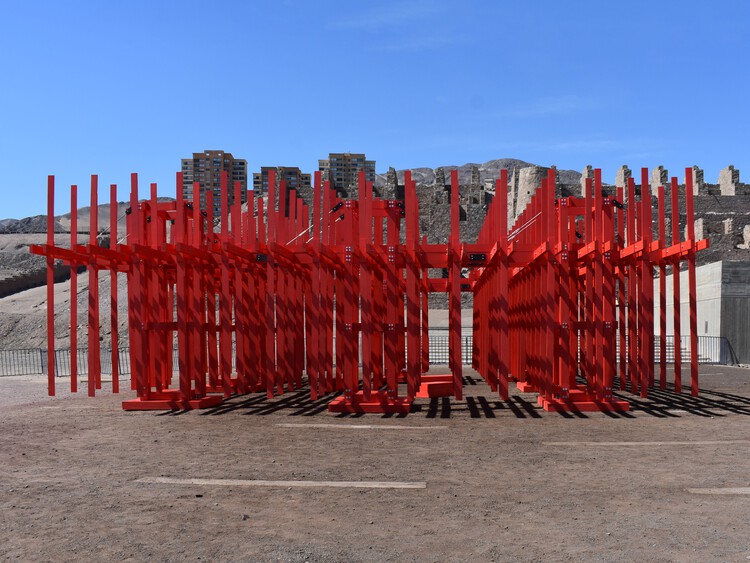
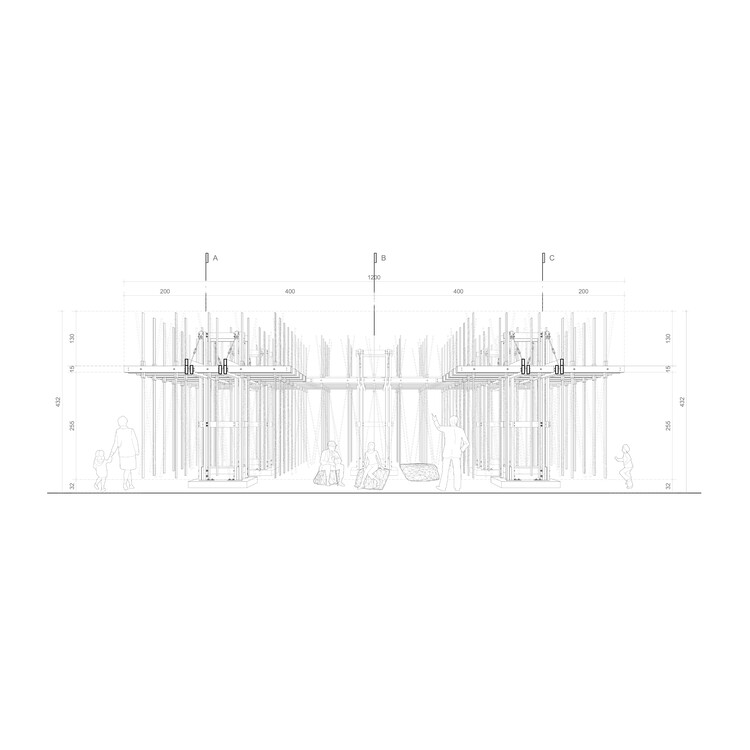
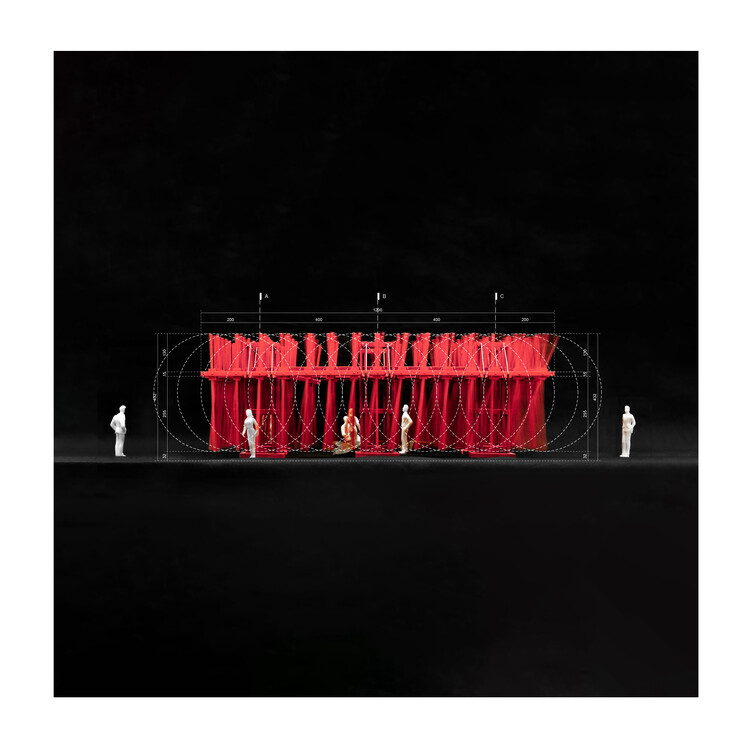
From a spatial perspective, the pavilion releases its center to be observed from the inside and rises carefully as a fragile structure on a floor where no footprints should be left. In this space, aspects such as gravity and weight, material and sound, and light, and shadow come together, affected by a conscious and unconscious movement of slow and sometimes clumsy action. This movement will reveal the precision of its anatomy in a clear and sharp way, but it will vary compositionally on different occasions.
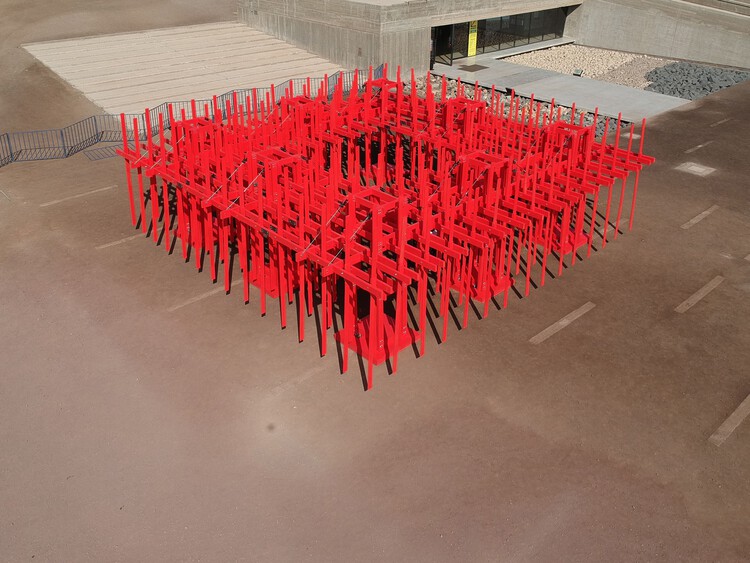
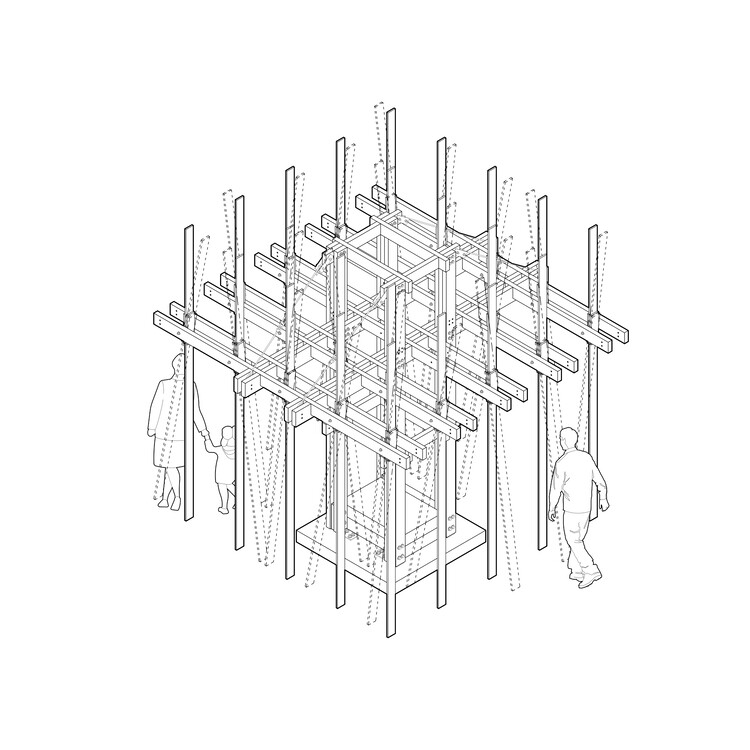
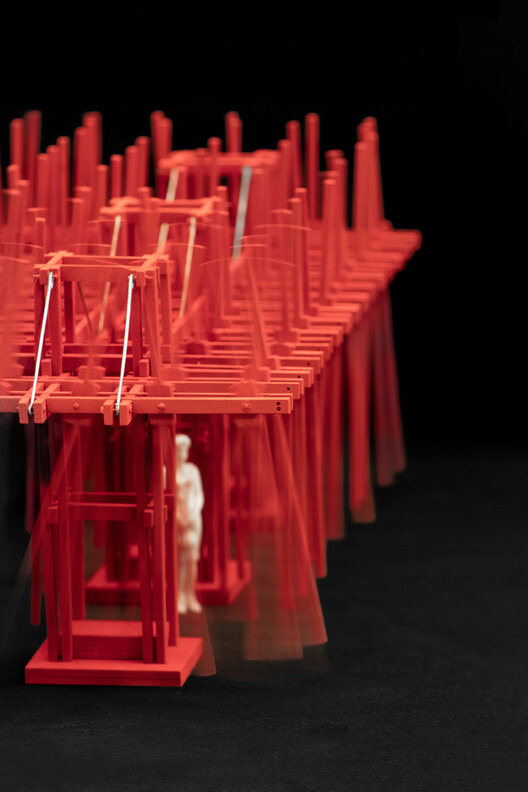
Wood is a priority material for study in this project, and it is affected by exogenous phenomena that build a process of transformation and natural deformation over time, highlighting the dynamic quality of the material. Some of the factors that cause wood to bend, twist, curve, move, and make noise are wind, humidity, heat, steam, temperature, and use.
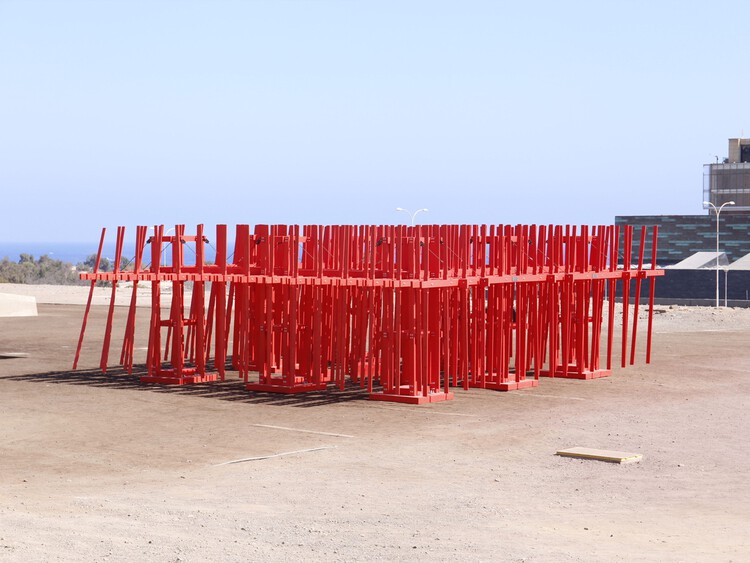
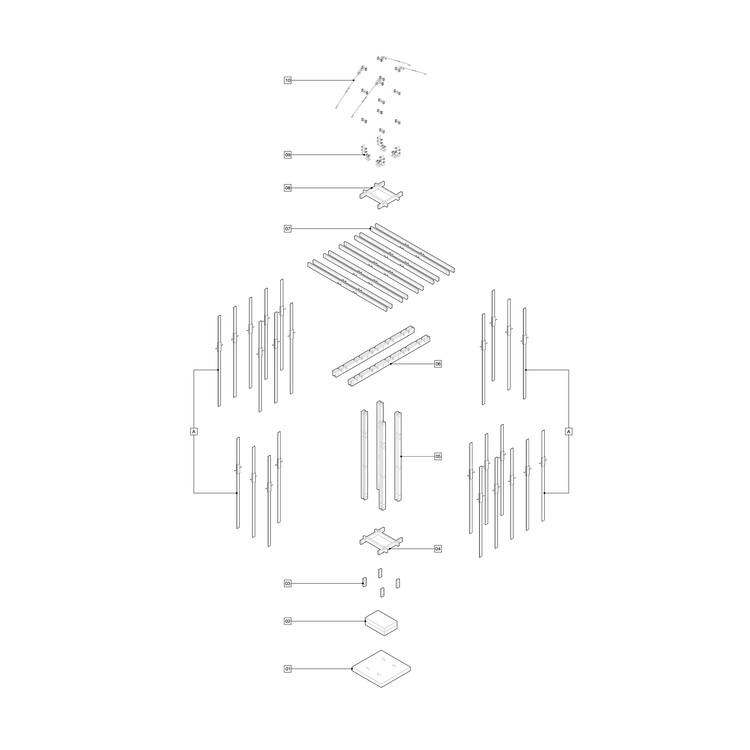
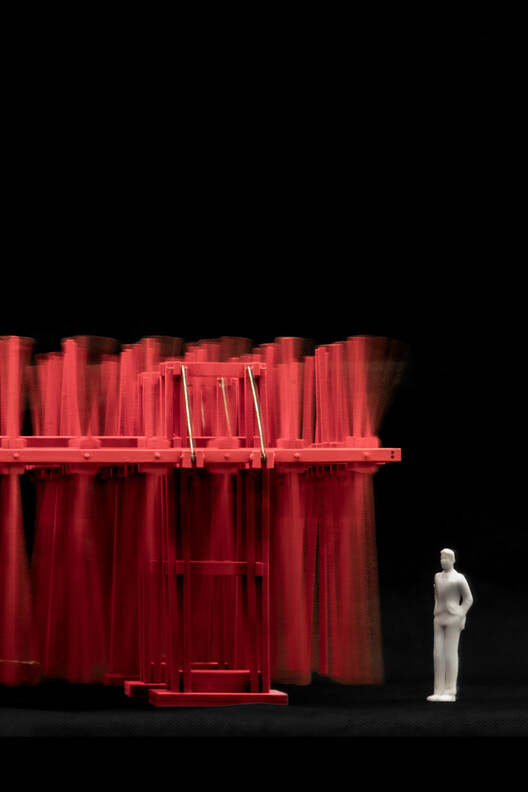
The pavilion’s sky is composed of a modular structure of eight wooden pillars that build their own rigidity. On top of them, a grid of wooden beams is interlaced, tensioned by cables towards the pillars. The sky serves as guidelines for hanging the woods that will remain pendulous and arranged for use, time, climate, and above all, memory.
